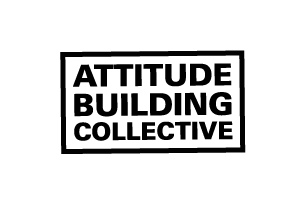
Due to the enormous consumption of energy and resources in the building sector, we as building professionals are key players in the fight for a livable and resilient built environment of today’s and future generations. At the same time, persisting growth ideologies impose massive economic constraints onto the construction industry, making the necessary changes almost impossible. We cannot and do not want to accept this status quo any longer. Our generation of building professionals neither wants to stand by nor be part of an industry that systematically and structurally neglects social and ecological concerns.

We are convinced that meaningful building and planning first and foremost requires a change in working culture. To work towards this change, we are the voice of a new progressive building culture. Responsible use of resources, emissions and the people who plan, build and use the buildings need to be the main priorities in the construction industry. Further, the interaction of the built environment with society, and with the natural environment, must be the primary objectives in everyday construction practice.
One of the main goals of our collective is to develop a common set of fundamental values for ourselves and all building professionals. We have established a flexible and interdisciplinary organizational structure that allows enthusiastic building professionals to participate. Together we form a network that collects and creates knowledge, develops it further and makes it easily accessible to all. This network shall grow to constitute a foundation that provides all building professionals with the capabilities to build in a climate-friendly and socially responsible way.

In the status quo of the construction industry, we do not see climate-friendly construction becoming standard. This is why we define our tasks as follows:
#1 We create a communication platform for building professionals to exchange ideas about the many aspects of the transformation of the building industry and beyond.
#2 We publish a manifesto on responsible, climate-friendly and socially just building which takes a clear stance and invites everyone to join.
#3 We organize workshops to motivate stakeholders and interested parties to learn together and to encourage action.
#4 We engage in public relations to excite more building professionals and decision-makers about our issues and to advocate for a meaningful transformation of the building industry.
#5 We develop easy-to-use solutions for climate-friendly planning and building that are open for multiple technologies. Our aim is to provide all interested parties with methods that can be used to plan and build sensibly in today’s environment.
#6 We offer sustainability consulting for building projects.
#7 We consistently push for the transformation of the built environment in our own daily professional lives. Thus, we set examples every day to mobilize all construction stakeholders for a meaningful, holistic and sustainable construction industry.
Sustainability is multidimensional – a distinction is often made between ecological, economic and social sustainability. Sadly, with regards to construction, the economic dimension still is in the foreground. In our view, however, a multidimensional and holistic approach is essential to ensure that the concept of sustainability is not instrumentalised and misused. Currently, the ecological dimension is increasingly coming into focus. This includes, for example, the reduction of greenhouse gas emissions or resource consumption. However, this shift is happening too slowly by far. After all, the construction industry is responsible for about 40% of global greenhouse gas emissions. The goal of limiting global warming to 1.5 degrees has already been missed, probably also due to the construction industry’s lack of contribution. The ABC therefore calls for sustainability in the construction industry to finally be prioritised! In concrete terms, that means for us:
Sustainability is the main value of the ABC and the starting point that brought us together as a collective. Therefore, at the core of all our projects is sustainability and how we can manage to prioritise it in the construction industry.

The enormous and continually rising consumption of energy and resources in construction is the result of a structural neglect of social and ecological aspects in construction – and it also showcases the alienation of humans from nature. During everyday project work, the focus on financials and timelines leaves little capacity to reflect on one’s own work and its impacts and consequences. In our opinion, this reduces the self-identification with the built object and inhibits necessary changes.
We evaluate the development of the last decades concerning the work and construction culture in the building industry as well as the dysfunctional relationship between building professionals and the built environment as increasingly critical. The question “What can we and what do we want to achieve as professionals for the built environment?” has to be raised.
Changing conventional ways of thinking and working is a long process. One possible way is creative and interdisciplinary cooperation in a collective. For this, ABC crosses doorsteps of individual actors and offices and creates a collective platform.

The Attitude Building Collective is an open structure that welcomes all who want to engage with issues of the building turnaround – regardless of prior knowledge, motivation and all social dimensions.
As ABC, we believe that every additional angle from which a challenge can be viewed and analysed leads to an even better solution. Since our goal is the transformation of the entire construction industry, the professional backgrounds of individuals are not decisive. What is decisive for fruitful cooperation at ABC are our beliefs and our will to change!
The foundation of our cooperation and joint actions are solidarity, support and empathy. This comes to the fore especially in face-to-face meetings, but also on our exchange and working platforms in the digital space. Together we advance our issues in the construction industry and represent them in a positive way until everyone is on board.
The term Collective is a fundamental part of our name and identity. Behind it are a multitude of joint activities and experiences. These include the joint exploration and work on professional content, joint decision-making, as well as mutual support in professional and private topics.
The ABC has an open structure. We want to make it easy for all interested parties to experience the ABC, to get an insight and overview of the ABC, and to become part of our collective. The openness of the ABC members, which we live both in the digital space and at the various locations, makes it easy for interested parties to integrate quickly and feel at home.

The ABC embraces its role as a responsible association and actively approaches the necessary changes in the construction industry with humility before nature. Being considerate of one’s surroundings and the environment means taking responsibility for them. This responsibility includes consciously questioning and reflecting on one’s own actions. We hold that consistently reflecting on one’s own actions as a building professional in everyday working life is already an important first step towards changing the construction industry.
Clients and project participants often have to be convinced of the importance of sustainable construction. This requires not only technical knowledge, but also an awareness of one’s own responsibility. By consciously advocating for more sustainability in the construction industry, we can actively contribute to making sustainable construction a standard and not only a part of “lighthouse projects”.
However, as a person working in construction, it is often arduous and sobering to take a stance against several opposing voices. Furthermore, knowledge about ecological thinking in construction is sometimes lacking.
The ABC would like to support you in this!
The ABC is a network for building professionals who want to actively shape the sustainable transformation of the building industry. The ABC appears publicly and distributes information about sustainable construction via various social channels such as LinkedIn, Instagram and YouTube.
The ABC offers a platform for exchange and networking: on the public Discord server, everyone can join in the discussion on various topics. In addition, the ABC offers other analogue and digital opportunities for networking and exchange. Through joint visits to lectures and personal meetings, technical knowledge on sustainable building can be expanded and exchanged. The discussion forums organised by the ABC offer critical discourse in the form of lectures, exchange and networking, as building professionals meet to discuss sustainability projects and issues.
The ABC as a non-profit association also offers the opportunity to work together on concrete projects for a more sustainable construction industry.

Transforming the construction industry sustainably is a major task – and it can only succeed if we stand behind our values, communicate them with determination and represent them consistently ourselves. For us, showing attitude is therefore a central component of our value culture.
In doing so, showing attitude manifests itself in words as well as in deeds, both towards a broader public and in one’s own personal environment.
In concrete terms, this means that we represent our stance in public. We want to draw attention to problems in the industry as well as possible solutions in a determined, passionate and consistent manner and make a difference through honest, independent and goal-oriented communication. One example of this is the essay “Holistic sensible building – perspective of the young generation of structural engineers” in the Engineer’s Yearbook 2023, in which three members make a plea to the entire industry. In our online format “Discussion Forum” and in cooperation with the podcast “Baustelle Bauwesen” and the “Stuttgarter Nachhaltigkeitsstammtisch”, a monthly lecture and discussion group on sustainable construction, we explain our motivation and delve into specific sustainability topics, thereby initiating discourse and motivating all construction professionals to critically reflect on their own actions.
For us, showing attitude also means integrity in relation to our own actions. We not only clearly state what we stand for, but we also act accordingly – even if it can be uncomfortable. We do this in our own daily environment, for example by initiating more sustainable approaches in projects, discussing with colleagues and challenging them to question their views, bringing up the topics of sustainability, circularity and resource conservation in meetings with clients, or making these topics visible in our research and teaching. In this way, we want to give examples and show ways in which every building professional can make a difference. Ultimately, through our commitment, courage and determination, we want to inspire others to also show attitude towards what they plan and build.

You are interested in our way of thinking and want to learn more about our values and what we do? Find out more in one of our public statement and essays.
